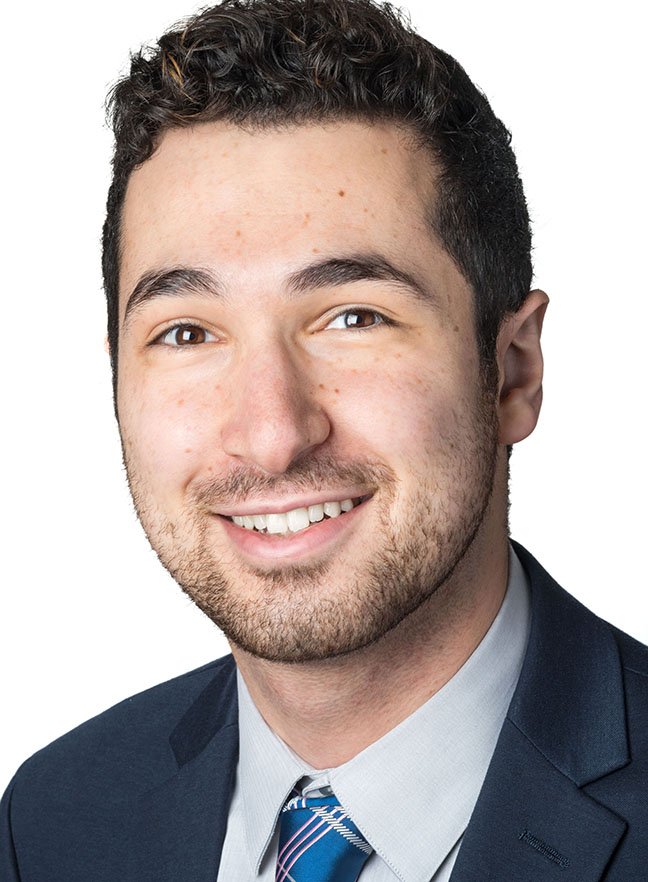CSE alumnus receives prestigious award for graduate school

Fellowship will support work toward a Ph.D. in chemical engineering at MIT
MINNEAPOLIS/ST. PAUL (04/14/2020)—University of Minnesota College of Science and Engineering alumnus Anthony Tabet, a 2017 University of Minnesota chemical engineering and chemistry graduate, is one of only 30 graduate students named as a 2020 Fellow by the Trustees of The Paul & Daisy Soros Fellowships for New Americans, a merit-based graduate school program for immigrants and children of immigrants. The fellowship winners were featured in full-page ad in the New York Times.
Chosen from a record-breaking pool of 2,211 applicants, Tabet was one of just 30 Fellows selected for their potential to make significant contributions to the United States. He will receive up to $90,000 in funding over two years to support his graduate work toward a Ph.D. in chemical engineering at the Massachusetts Institute of Technology.
A humble beginning
Tabet started his life in a town outside of Beirut, Lebanon after a civil war that nearly killed his entire paternal family and forced them to flee to the countryside. He immigrated to the United States with his parents in search of opportunity and freedom from violence.
Tabet moved with his family to Blaine, Minn., and went to Irondale High School in New Brighton. He began his studies at the University of Minnesota full time when he was 16 years old through the post-secondary education options (PSEO) program. He fell in love with the chemical sciences and majored in chemical engineering. Tabet worked in the lab of Chemistry Professor Aaron Massari on a series of projects in polymeric materials. Following his interest in applications for polymers in biotechnology, he began working with Biomedical Engineering Professor Chun Wang and has developed a polymeric platform for hydrophobic pharmaceuticals.
Tabet’s undergraduate training was supported by a Wallin Scholarship, Barry Goldwater Scholarship, and an Astronaut Foundation Scholarship. He received an Amgen Scholarship to support a summer research project at Stanford University, where he worked in the lab to create inks for 3D bioprinting. After graduating, he traveled to Cambridge University as a Churchill Scholar and received an M.Phil. in chemistry, working in the lab on stimuli-sensitive hydrogels for biomedical applications in the central nervous system.
While living in Minneapolis, Anthony became frustrated with the barriers entrepreneurs face in starting companies in the Midwest. He cofounded the company CoCreateX to streamline how scientists and engineers find resources, capital, and community. When Anthony was 21, he was named to Minnesota Business Magazine’s “35 Under 35.”
“At a time when anti-immigrant sentiment is rising at an alarming rate, the state of Minnesota has and continues to be a steadfast national leader in supporting immigrants and New Americans,” Tabet said. “I really cannot overstate the extent to which I owe my entire career to the investments the state and the University of Minnesota made in me. The state was tremendously welcoming to my family and me as new immigrants from the Middle East. They gave me the opportunity to start as a full time college student, tuition-free, when I was 16 years old through the PSEO program. Paid research opportunities with Professor Aaron Massari and Professor Chun Wang let me focus on learning how to be a scientist without having to take extra campus jobs.”
Moving to the next stage of life
Now pursuing a Ph.D. in chemical engineering at MIT, Tabet is creating brain-machine interfaces that can permanently integrate into the brain and be used to study or treat brain tumors like glioblastoma. After his training, Tabet hopes to start a research lab at a university that can perform both fundamental and translational research on technologies that can improve human health in the most challenging-to-treat diseases.
“I love the fields of biomaterials and neural engineering because they allow me to utilize my background in materials chemistry to create technologies that have the potential to improve the lives of patients,” Tabet said.
Founded by Hungarian immigrants, Daisy M. Soros and her late husband Paul Soros (1926-2013), The Paul & Daisy Soros Fellowships for New Americans program honors continuing generations of immigrant contributions to the United States.
“Being a New American means having intersectional identities,” Tabet said. It means that you come from a cultural background that gives you a different and valuable perspective on challenges and opportunities. For me, being a part of multiple communities helps me see the shared values between groups of people that, on the outside, appear very different. This intersectional identity makes me appreciate the shared human values that transcend borders.”
To read the full bios of the 2020 Soros Fellows, visit the Paul and Daisy Soros Fellowship for New Americans website.
2021 Application Now Open
The application for the 2021-22 academic year is now open and is due on Oct. 29, 2020. The application is open to college seniors, students applying to graduate school, and those who are in the early stages of graduate school. For more information and to apply, visit the Paul and Daisy Soros Fellowship for New Americans website.
